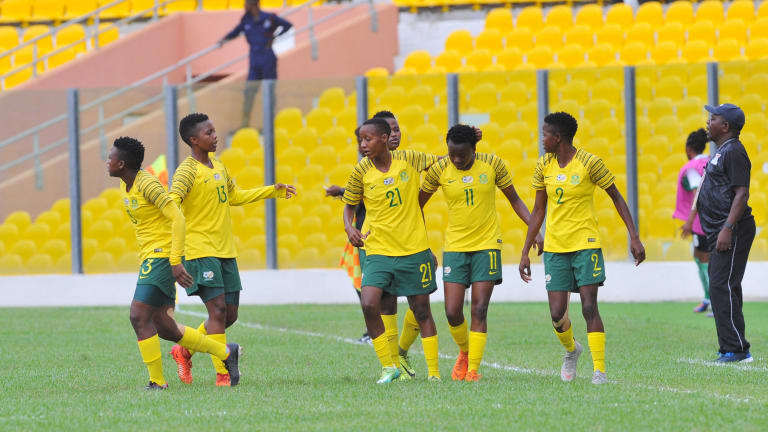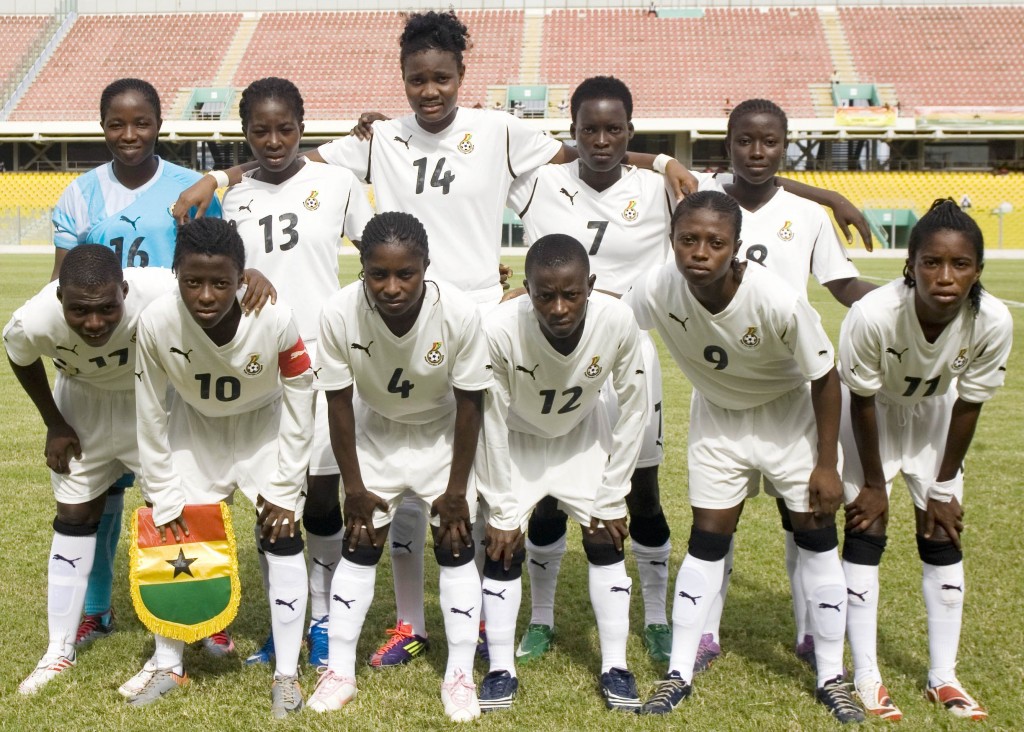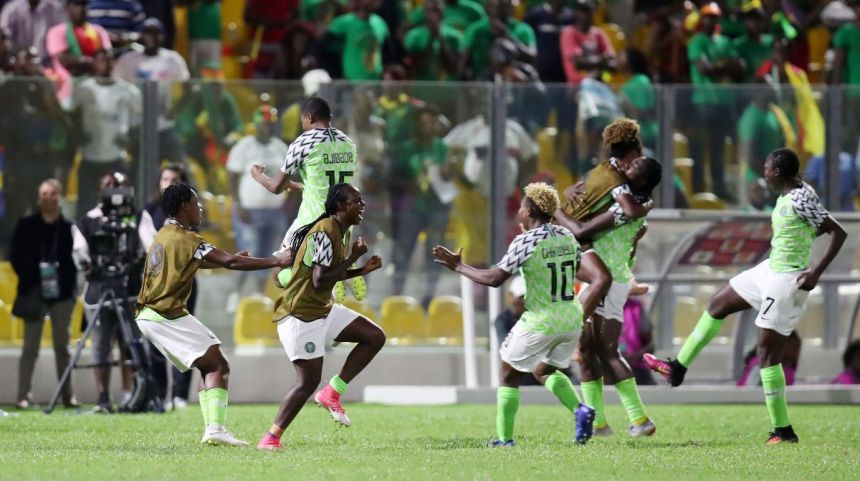Here in France, its football fever once again as the women’s World Cup is taking place. It’s arguably one of the first years the tournament has received such widespread attention from both fans and the media, elevating women’s football or soccer to some, to its much-deserved place beside the men’s competition.
Even FIFA officials back in April said ticket sales were smashing records.
It’s only the 8th time the completion has taken place, beginning with the first inaugural one in 1991 hosted by China.
The competition is held every four years, just like the men’s game, and many say this year’s Women’s World Cup is setting the stage for the sport.
While teams from all over are competing, there are none this year from the Middle East.
But that doesn’t mean football is dead in the region – quite the contrary.
Football in the Middle East
In fact, just about every country in the Middle East has a women’s national football team, apart from Saudi Arabia and the United Arab Emirates.
The oldest one was established in Iran back in 1970, though it took a break from 1979 to 2003.
And the most recent team came from Iraq in 2010.
But there’s still a ways to go before women’s football becomes properly funded and resourced says Honey Thaljieh, the first captain of the Palestinian national women’s team.
“We hope that in 2023 there will be an Arab football team. Jordan was actually close to qualifying but then they didn’t make it in their latest stages. But I think this is a message to all Arab countries, member associations: invest in your women’s football, because they will generate more benefits to you than the men’s team believe it or not.”
Women banned from football
In many parts of the world, women’s football had a rough start.

In fact in its country of origin, England, women were banned from playing for the better part of the 20th century.
“Certainly women’s football became very popular during world war one when the men were away at war,” says Rosy Matheson, the developing and marketing manager for Lewes FC women’s team in England.
“The women began to play football for the factory teams where they worked, and where they were making weapons for the war effort. They were known as ‘munitionettes’ and they played games during factory breaks and formed teams to play one another.”
In fact, women’s football became so popular then that on Christmas Day 1917, some 10,000 people came out to watch two women’s teams in the north of England says, Matheson.
Even after the war ended and the men came home, women’s football continued to grow. By 1920 there were so many women’s teams that it’s often been referred to as “the golden age of women’s football”, complete with interesting characters, such as Lilly Parr who played for Dick Kerr’s ladies.
“Lilly Parr, who played for Dick Kerr’s ladies, was a winger and was one of the first female professional players. It’s been said that she was the Lionel Messi of her day. And Parr was openly gay, six-foot-tall and smoked like a train. At Parr’s request, her match fees were supplemented with Woodbine cigarettes. So very healthy” chuckles Matheson.
Women’s football continued to grow as the number of crowds attending the matches also increased. But that came to a screeching halt in 1921.
“In 1921 women’s football was banned in England. This was an initiative by football’s governing body, the Football Association, or FA for short. So the FA decided to ban women’s football because they feared that women’s football would deter spectators from attending men’s games. And also they claimed at that point, that football was ‘quite unsuitable for females and ought not to be encouraged’. It took them just 15 minutes to ban the game on the grounds that it was bad for women’s bodies”.
It took the FA 87 years to apologise for banning women from football.
That was in 2008.
Different barriers in the Middle East
While women haven’t faced that kind of blatant opposition in the Middle East, they are still struggling to be taken seriously as professionals. athletes.
Thaljieh became the captain and the co-founder of the first women’s football team in the Palestinian territories.
To many, breaking one barrier is quite a feat, but to be officially recognized as the head of a Palestinian team is also remarkable given the political context
And that love for the sport and also for a challenge prompted Thaljieh to put do something for women’s football.
She was certain that there were other girls who also had a burning desire to play competitively but not just with the boys, but rather on a girls team in a secure area where “they are respected and treated in a good environment”.
So while studying at Bethlehem University she and a friend put together the first women’s football team.
News of the team spread despite the “culture of intimidation”.
She flashes her big smile full of reassurance as she recounts the story. “You need someone to break the first step in order to follow. And that was it, despite everyone say[ing] it was impossible, we made it possible.”
Politics and Football
Given the political situation, Thaljieh and her team members had a double challenge ahead of them when compared to women in nearby countries.
While girls in other countries of the region suffered, such as in Jordan or the Gulf or in Syrian, they didn’t face the political oppression Thaljieh says they had to deal with on a daily basis.
“That’s what made our struggle even stronger. Because I always believe that pressure is a privilege. And when we are under such situations, we become even more resilient and more fighters, to fight for freedom for equality for justice and that was the message from the creation of this team”.
Fifa’s recognition of the men’s national football team in 1998 gave Palestinians a sense of identity, proving that while people play for the love of the sport, sports can have a political impact.
“In the Palestinian context, football was much more important than the politics, because football put us on the international map, while politics, until today Palestine is not on the map. Every time I try to book my flight or go somewhere, I look for Palestine, I don’t find it. But on Fifa, Palestine [has been] recognized since 1998” stresses the former captain.
Cultural barriers
Cultural barriers also needed to be broken before the women could become a force.
Thaljieh and her teammates had to convince the girls who then had to convince their families.
Many of the girls instead opted to play ‘safer’ sports, like “volleyball and basketball”.
But she says they stressed the idea that playing football was open more opportunities, including travel outside the country.

Dawn of a new age?
An injury put an end to Thaljieh’s football aspirations, and she now works as the corporate communication manager of FIFA in Switzerland.
But that hasn’t stopped her from doing what she can to make sure the girls and women back home have more support for football.
“I am helping whether I’m in the country or without. I’m in Zurich, and I still support my team, and connect it with the federation and find opportunities for the girls. I don’t have to be there physically to give support.”
Elsewhere women’s football is slowly reaching to its full potential, but it’s still a struggle.
After the ban was lifted in England, the women’s game still suffered from a lack of resources says Rosy.
“So after the ban was lifted there hasn’t been enough resources or emphasis given to the women’s games. It’s only in the last two decades that resources have been channelled into the women’s game and the available evidence suggest that given equal resources and cover the demand for women’s football would be just as strong as it is for men” explains Matheson.
For Thaljieh, women’s football is now finally making its mark, both back home and ultimately all around the globe.
“The road is still rocky, but there are so many inspiring women who are fighting for equality, fighting for their rights and they’re standing up and they’re courageous enough to raise their voices up. And that’s what we want to see more. Women standing up for their rights without fear and without hesitation”
You can subscribe to the Mid-East Junction podcast by searching for ‘rfi mid-east junction’

